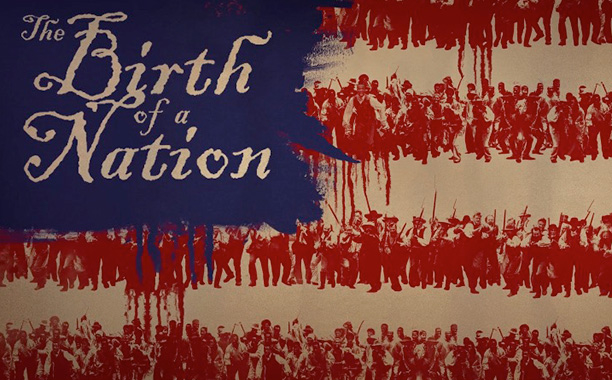
I took myself to see Birth of a Nation earlier this week. (I told you I would.) Short review: well-acted and a good directorial debut, but the script struggles, and not because of its historical misrepresentations. The script suffers from a lack of complexity in the characters and an oversimplified plot.
More elaborate review of the script, with as few spoilers as possible:
To be honest, I have read zero primary sources on the Nat Turner rebellion and don’t know enough details of it to speak adequately to BOAN’s historical accuracy. There were many moments where I doubted the film’s accuracy, or I thought to myself, “No way that happened.†Of course, now that I’m in a class about public history, I have different expectations when something claims to be historically accurate. Historical accuracy isn’t even a thing I look for anymore in feature films.
I do however, look for “truth.†Kind of like how some SCOTUS judges consider the spirit of constitutional law rather than the letter. What can we learn about human nature through the depiction of another time, and what can we learn about another time through an artist’s depiction of human nature in that era?
The truths I think BOAN viewers will take away: 1) An oppressed people will rise up against their oppressors. 2) There was no limit to slavery’s brutality. 3) There was no punishment too cruel for people not considered people.
For most people, though, these aren’t new lessons. And even with graphic, even horror film level gory depictions of physical violence (you will be spared graphic depictions of sexualized violence, which is an interesting and rare choice in movies about the slave era, and I don’t know how to interpret it here. Parker can’t be trying to say sexual violence against black women isn’t important, because it is a motivation for revenge in this film. Maybe, to his credit, he’s just had enough of seeing black women’s sexual victimization as entertainment? It’s also interesting that female nudity is only displayed in a consensual, married, black-only moment, and then only briefly, but I digress), it’s still hard to get at the psychic, spiritual, and emotional terror of enslavement. It’s also hard to show, in film anyway, psychic, spiritual, and emotional resistance.
Given that it is the story of an enslaved black preacher who has a series of visions from God that lead him to lead an Old Testament style rebellion for freedom, the opportunity to at least show spiritual resistance is inherent in Turner’s story. Screenwriters Parker and Jean Celestin don’t spend enough time on it, though. It is evident from the film that the Holy Spirit built up in Turner’s character, and that the immorality of slavery (not the rape of his wife, as several reviewers have suggested) is what drives him to rebellion. But I wish the vision/dream/magical realism sequences had been longer or more frequent to show more of Turner communicating with God. I do realize it’s hard to do that without making a character also look crazy, which I don’t think Nat Turner was.
I also realize this is all a high calling for a first-time screenwriter and director. One thing, however, should be required of any green-lighted script: complexity. Not too complex because, again, this is a medium in which you show, not narrate, but some complications that stem both from internal conflicts and external barriers are necessary.
Most of BOAN’s characters don’t have those kinds of complications. Slave laws varied from state to state; what are the laws in Virginia? What are master-slave relationships like specifically in Southampton County? What is Turner’s owner, Sam’s, relationship with God? Just how much debt is he in? Why does he look classy on Sundays and all the white men at the other plantations look like trash, but they have money to pay him? Turner says join the rebellion, and only the house negro has a second thought? Not one man stops to say, “What if they hurt my wife or my kids because of what we do?†or “Who’s going to take care of my wife and kids if I die?†(No women step forward to take up arms in this film. Why not? Because the characters aren’t complex.) No one wants land or money or shoes or decent clothing in addition to freedom? No looting (or taking material payment for one’s labor), just killing? Nobody wants to just burn every plantation to the ground? No one wants to skip the fight and just run? No one questions Turner’s leadership? No one has divided loyalties? Rebellions can fall apart because of these issues, but they never come up in Nat Turner’s rebellion? And what motivation does the turncoat have for his betrayal?
We might know some of these answers if the film spent just a few more scenes away from Nat Turner. Most of the film is told from his point of view. We know only what he knows and see only what he sees. But the fact that Parker and Celestin deviate from this view a few times in the script prove they could do it more often.
Nonetheless, the film is powerful in both its gore and its heroism, and it’s worth seeing for anyone willing to separate Parker and Celestin the artists from Parker and Celestin the alleged rapists. (Frankly, anyone who can’t separate the two probably won’t have anything positive to say about BOAN anyway.) But I think people who are looking for black women’s agency, a critique of capitalism, recognition of slavery’s psychic trauma, and the level of human complexity that could both sustain a person enduring constant brutality and cause them to waiver at the chance to rebel should skip Birth of a Nation and go read The Book of Night Women instead.
